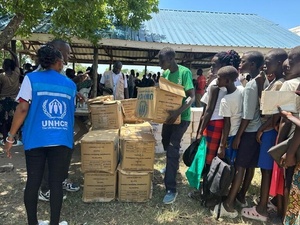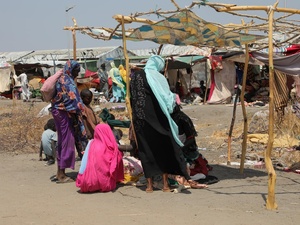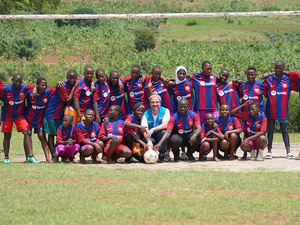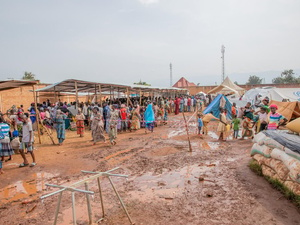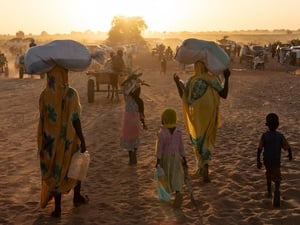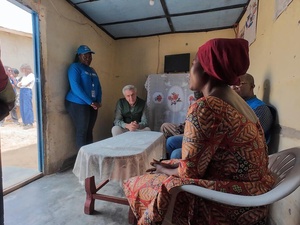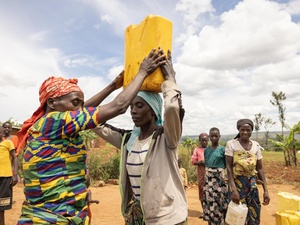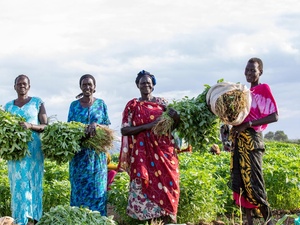UNHCR helps women at risk rebuild their lives through cash assistance
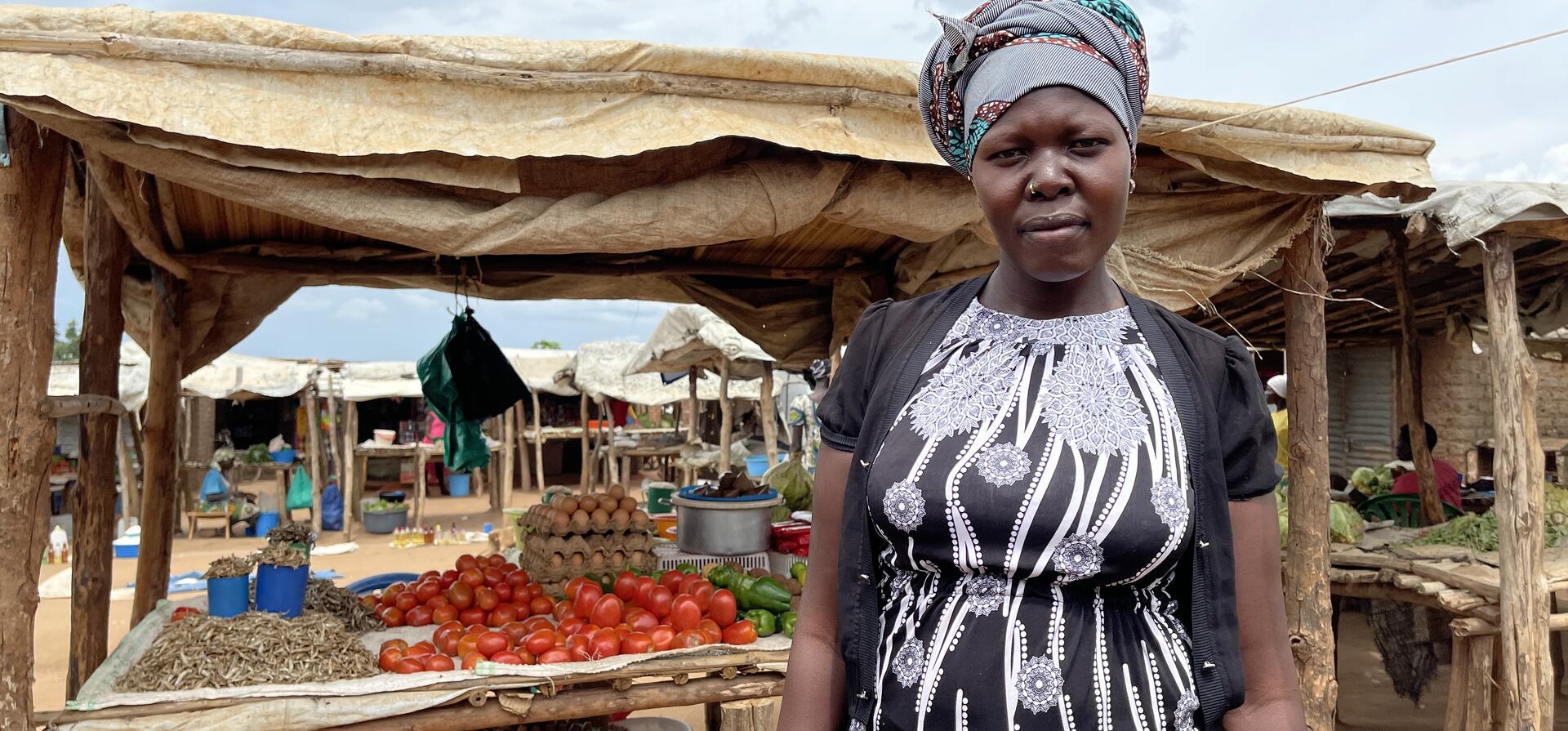
UNHCR helps women at risk rebuild their lives through cash assistance
Every Saturday, Night Juan wakes up before sunrise and jumps in a shared taxi to go to nearby towns and source fresh fruit and vegetables for her produce stall in Uganda’s Bidibidi refugee settlement.
“It is the first time I ever run a business. I have spent all my life being a housewife,” said Juan, a single mother of four and a refugee from South Sudan. “But I have fully embraced the opportunity and I am trying to make the most of it for the sake of my children.”
She is one of over 1,500 survivors of gender-based violence (GBV) who received cash assistance from UNHCR, the UN Refugee Agency, to help her recover from the traumatic experience and cover the basic needs of her family. This intervention is part of a broader programme financed by the Central Emergency Response Fund (CERF) in 2021 to strengthen GVB prevention and response in five refugee settlements in Uganda, namely Rhino Camp, Bidibidi, Adjumani, Palorinya and Kyangwali.
Juan fled to Uganda in 2016 after losing her husband to the civil war in South Sudan. “The idea of starting a new life with no money, no job and no friends was overwhelming,” said the 29-year-old mother. “I couldn’t stop worrying about my children.”
A couple of years ago, she began a new relationship in Bidibidi settlement and married a fellow South Sudanese. “He assured me that he would take care of my children, but I soon realized that it was an empty promise.”
The couple welcomed a baby girl in 2020 in the midst of the COVID-19 crisis in Uganda. “After I gave birth, my husband became abusive and walked out of my life,” said Juan adding that the pandemic made things much worse. “I really struggled until I got this money. I was so happy to see my name on the list.”
I couldn’t stop worrying about my children.
Following an in-depth needs assessment, UNHCR provided the cash assistance via mobile money to over 1,500 women at risk and GBV survivors. Each woman received approximately US $46 a month for eight months, in addition to a cellular phone and financial literacy training.
“I was able to set up my own business and I can now afford buying food and clothes for my children,” said Night. “I have also used part of the money to improve my home.”
The financial literacy training, delivered by UNHCR in partnership with the International Rescue Committee, was a key component of this activity, ensuring that refugees are better equipped to make sound financial decisions and set financial goals.
"The training was excellent,” said Juan adding that she is now able to appreciate the importance of saving money. “I advise women in my community how to use their money wisely. As far as I am concerned, my plan is to use some of my savings to give my children a better education.”
Beyond cash assistance, the contribution from CERF, worth US $2 million, helped UNHCR set up four one-stop centres in three settlements to provide integrated services to GBV survivors, including psychosocial support, health care and legal assistance; undertake awareness campaigns on the SASA! approach to address the imbalance of power between women and men, girls and boys; and improve safe shelters for women at risk.
“Such programmes clearly show that survivors of gender-based violence have the power and agency to transform their lives for the better. What they need is an opportunity,” said Joel Boutroue, UNHCR Representative in Uganda.
Uganda is home to over 1.5 million refugees, mostly from South Sudan, the Democratic Republic of the Congo and Burundi. With over 4,000 GBV incidents in the first 10 months of 2021, prevention and response activities remain a priority for the operation.
“Funding for these activities has to be scaled up,” said Boutroue adding that States have a responsibility to act on the commitments made at the Global Compact on Refugees to support gender equality.


